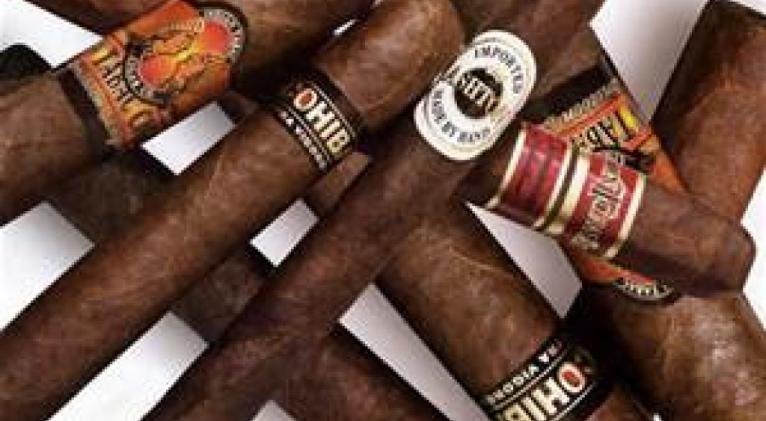Cuban cigars, a tradition of excellence

The story goes that, in 1492, when Christopher Columbus and his crew landed on this beautiful Caribbean island, they were seduced by the aroma of a mysterious leaf which the natives, who called it cohíba, rolled up and burned.
From that moment on, tobacco began its long journey around the world and is currently cultivated and sold in many locations, although with perceptible differences from that grown in Cuba for more than 500 years.
Black tobacco is unique in its texture, taste and fragrance, as a result of the combination of four elements only found here: soil, climate, the variety planted and traditions followed by Cuban growers and cigar rollers.
Connoisseurs of the Cuban habano will gather for the 16th Havana Cigar Festival February 24-28, to enjoy and evaluate their favorite smoke.
Dedicated this year to the brands Hoyo de Monterrey, Partagás, Trinidad and H. Upmann, the event provides the opportunity for enthusiasts from more than 60 countries to gather and learn more about the featured brands, other Cuban products and the tobacco growing province of Pinar del Río.
Special attention will be afforded new products being introduced on the world market in 2014; special releases to be distributed through the Casa del Habano national network; a long ash competition and a cigars in visual art contest, entitled Habano en imágenes.
As is customary, included on the program are visits to plantations and cigar factories; humidor auctions; the Habano sommelier contest; the presentation of Habanos 2013 awards; and the commercial fair to promote contact between international distributors and Cuba’s cigar industry, to develop ties with other brands and luxury products around the world.
To be celebrated this year is the 170th anniversary of the prestigious trademark H. Upmann. Ana López, Habanos S. A. marketing director, recounted the history of Cuban cigar brands which began in the 19th century. H. Upmann was founded in 1844 and has continued its development to become available in 150 countries. Sales of H. Upmann cigars represent 4% of the company’s income.
Given that on a world level tobacco is increasingly smoked outdoors and in the summer months, Habanos S.A. has created a promotional strategy reflecting his trend.
“During this year’s elite event, two important moments will occur, an alliance with Belgian and Cuban beers, principally, and with cocktails based on vodka. Both are products linked to summer and are not usually considered after dinner drinks.”
Gourmet cooking will also be represented at the Festival, during the evening dedicated to the Trinidad brand, celebrating its 45th anniversary this year. Dutch chefRon Blaauw, recognized internationally with two Michelín stars, has designed the menu, according to Ana López.
“There is a growing tendency among smokers to age the product for at least five years, to better appreciate its other organoleptic characteristics and during the Festival we are going to devote a special moment to tasting an aged cigar, with a master class entitled Habanos Vintage, by British expert Simon Chase.
Prior to a lecture on the elements which influence the combustibility of a cigar, by Vladimir Andino, president of the Tabacuba company, the ‘longest ash’ competition will be held.
The specialist clarified that this novel event demonstrates the quality of Cuban cigars, since only a well-conceived product, manufactured with quality prime material, smoked by an experienced consumer, can maintain a long ash.
Ana López added that the quality of all stages of the production process are made evident in the ash.
She reported that growers – principally in Pinar del Río where the greatest volume of raw material is produced – have been engaged in a constant struggle against inclement weather, related to climate change.
“Unfortunately, over the last few months, the rains have been very heavy and this has produced some damage to crops. Replanting has been necessary on several occasions, requiring considerable effort on the part of growers, to attempt to reduce as much as possible the impact on cigar production.”
Nevertheless, she said, the Cuban industry is prepared to meet this challenge. For several years now, work has been underway to ensure a stocked supply of raw material, to be used in the event of such adversities.













Add new comment